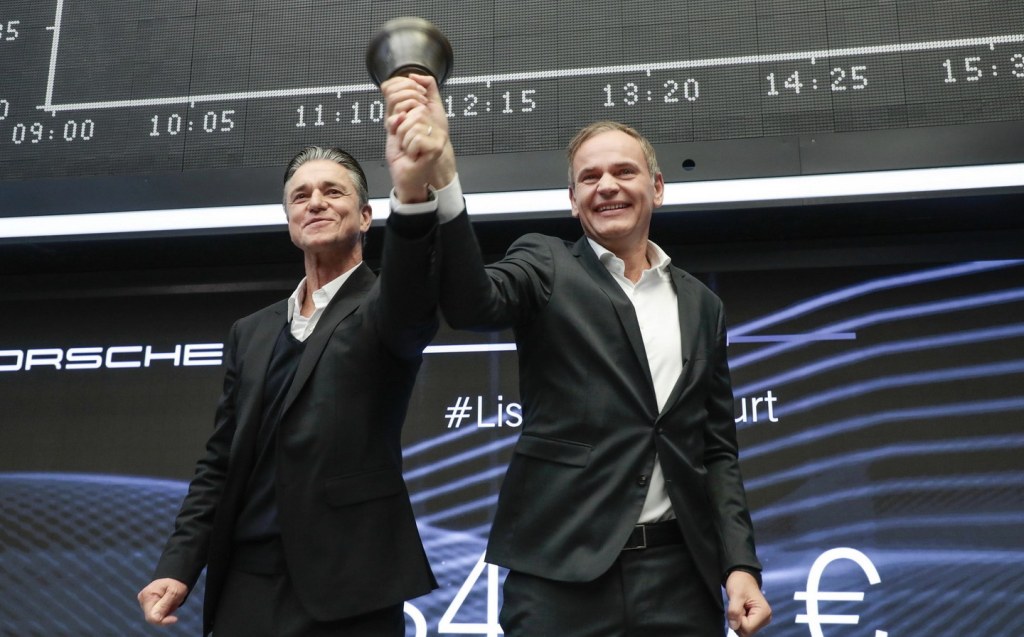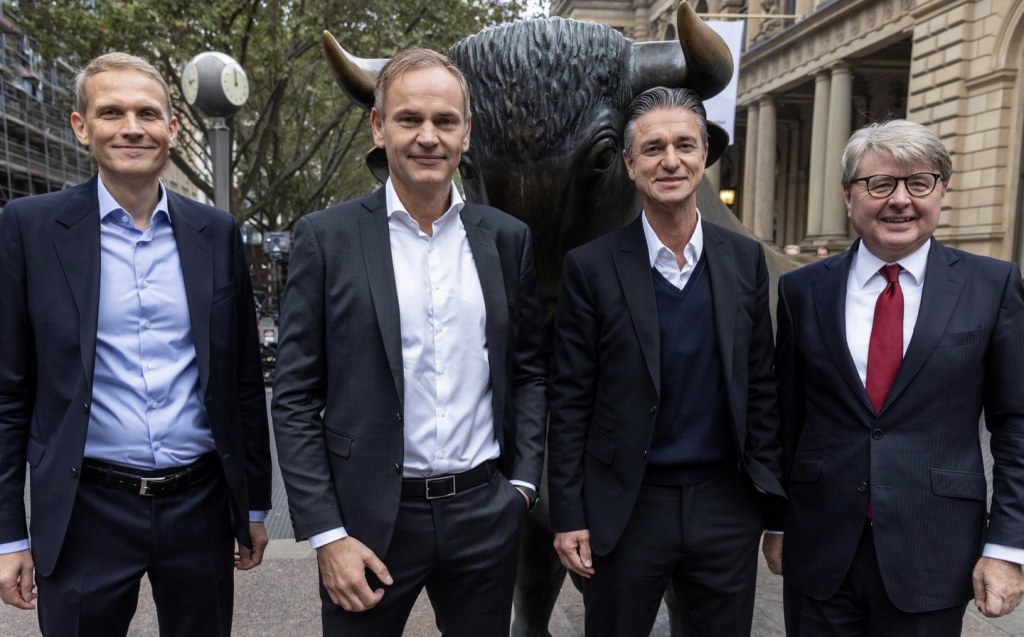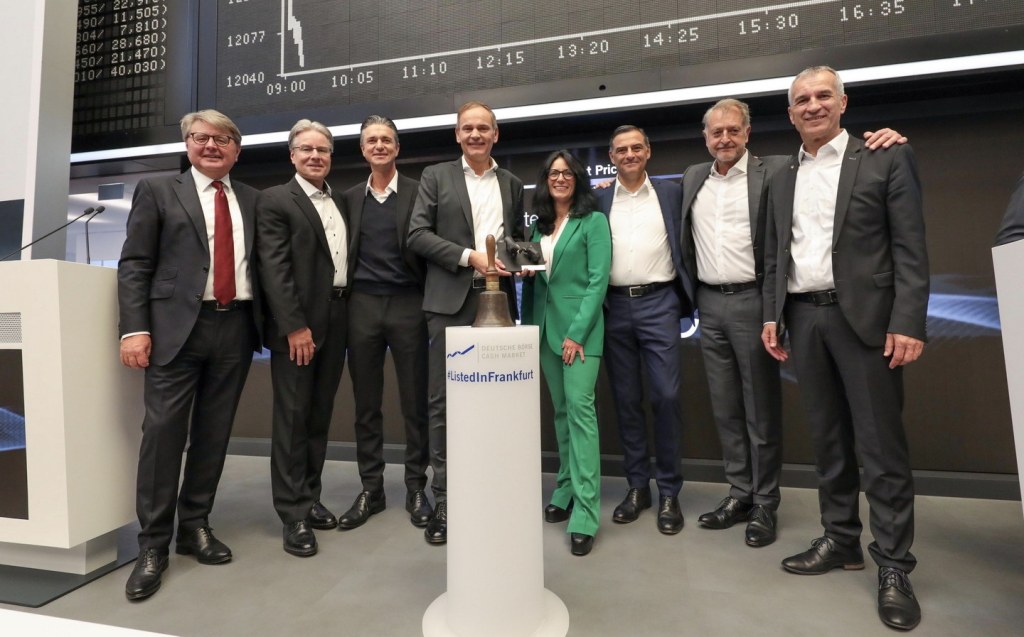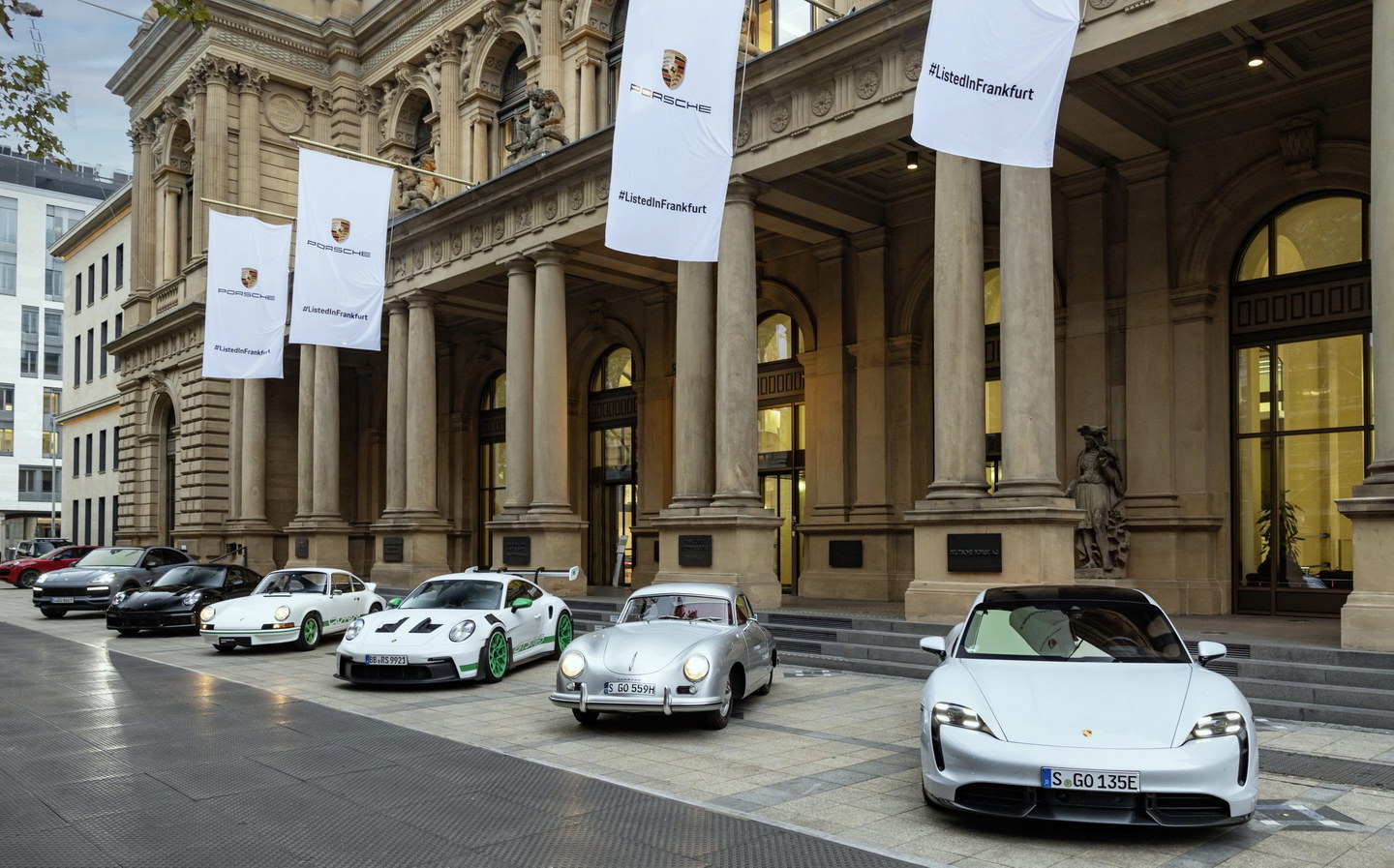Porsche makes €75bn stock market debut in attempt to raise funds for electrification
Blume to stay as CEO
German car-maker Porsche has made its stock market debut, with an initial public offering (IPO) worth some €75bn (£65bn) on the Frankfurt exchange.
With shares priced at €82.50 (£72.35) apiece, Porsche’s IPO is the largest stock market flotation in Germany in more than 25 years and one of the largest ever seen in Europe, second only to Deutsche Telekom’s in 1996.
The shares on offer represented 12.5% of Porsche’s stock and parent company Volkswagen’s move to float part of Porsche’s shares is chiefly an attempt, among other things, to raise some of the billions of euros required for investment in electrification and the retooling of factories across the Volkswagen Group more widely.

Of the €19.6bn raised in the IPO, €9.6bn will go to VW, with the rest being distributed among shareholders as a special dividend.
As well as raising funds for electrification, Porsche hopes that a flotation will allow it to repeat the same trick as Ferrari whose stock is positioned more akin to a maker of luxury goods than a car manufacturer, with its shares trading at 38 times the company’s earnings per share as opposed to just four for VW.
Following the IPO, Porsche is trading at 7.2 times its earnings.
Of the shares issued, 25% plus one single share were bought by Porsche SE, a company owned by the Porsche and Piëch families, which is also Volkswagen’s largest shareholder. This gives the Porsche-Piëch clan a blocking minority at Porsche.
Other major investors at the IPO include the investment management firm T Rowe Price and the sovereign wealth funds of Qatar and Norway.
Curiously, Volkswagen had been valued at around €80bn on the Frankfurt Börse prior to Porsche being separately spun out — a valuation it still retains, indicating that the group of companies, which includes VW, Seat, Cupra, Skoda, Audi and Lamborghini, has long been under-valued.

Speaking following the floatation, Porsche’s CEO Oliver Blume appeared to have — for now — settled the lingering question of who would succeed him at Porsche following his appointment as the head of the Volkswagen Group.
Blume ascended to the role of CEO at the VW Group on September 1 this year following the effective sacking of former boss Herbert Diess due to a range of issues including public gaffes, friction with VW’s powerful works council, delays in the implementation of new vehicle software and the company’s mediocre performance in the crucially important Chinese market.
With Blume at the helm of both Porsche and VW, it was thought that once he steered Porsche through to its IPO that he would step down to focus on his job at Volkswagen. This, he confirmed, however, won’t be the case, and he said that he will stay on as dual-CEO.
Although Porsche’s IPO has started out strongly, it could scarcely come at a worse time with global markets in turmoil due to a number of factors including spiralling inflation, rising interest rates, record-high energy prices, dimming consumer confidence and the ongoing war in Ukraine.

Volkswagen has countered that argument saying that, for fund managers, as a stable and profitable business rather than a flash-in-the-pan start-up, it was an ideal firm in which to invest.
Porsche’s IPO now makes it one of the top five most valuable listed companies in Germany ahead of Mercedes-Benz, BMW and even huge pharma firms such as Bayer and Merck and the financial giant Allianz.
Related articles
- After reading about Porsche’s stock market debut, you might be interested to read why Porsche and Red Bull ended talks on joining forces in F1
- Watch Porsche a set new electric Nürburgring lap record – beating Tesla Model S Plaid
- And click here to see all the car makers’ electric vehicle plans
Latest articles
- Seven great automotive events to visit this summer, from F1 to art and champagne
- Watch new Porsche 911 GT3 smash Nürburgring record for manual cars
- Skoda Elroq 2025 review: Czech carmaker can’t seem to miss with its electric family cars
- Five best electric cars to buy in 2025
- Should I buy a diesel car in 2025?
- F1 2025 calendar and race reports: The new Formula One season as it happens
- Zeekr 7X AWD 2025 review: A fast, spacious and high tech premium SUV — but someone call the chassis chief
- Denza Z9GT 2025 review: Flawed but sleek 1,062bhp shooting brake from BYD’s luxury arm
- Extended test: 2024 Renault Scenic E-Tech review














